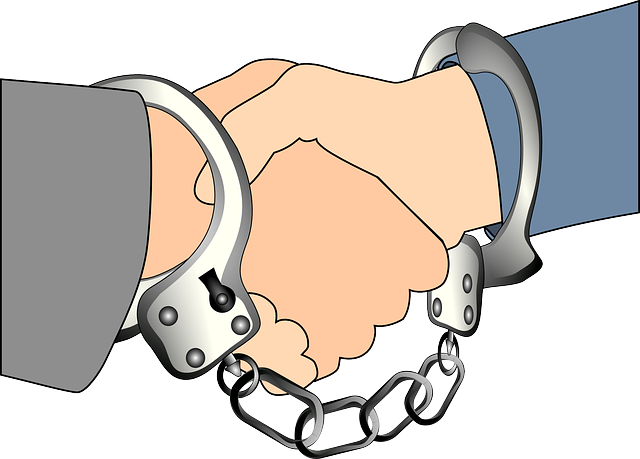Understanding drug interactions is paramount for individuals facing DUI charges and those in recovery from substance abuse. Mixing substances can have severe health risks, with support groups emphasizing transparency to reduce these dangers. DUI laws aim to deter impaired driving, leading to penalties like fines, license suspension, and jail time. Support groups play a vital role in recovery by educating members about drug interactions, fostering understanding, and providing emotional support. These groups create safe spaces for sharing experiences, coping strategies, and practical advice, empowering individuals to make informed decisions and avoid relapse. For those facing DUI charges, they offer guidance through legal complexities while focusing on long-term recovery, emphasizing drug-free living as a cornerstone for sobriety.
“In the journey towards recovery, support groups offer a beacon of hope. ‘Support Groups Recovery Together’ explores the transformative power of these safe spaces, where individuals find solace and strength in shared experiences. We delve into critical aspects of addiction, such as understanding drug interactions—the hidden risks of mixing substances—and the impact of DUI laws, highlighting penalties and consequences. Additionally, we examine the profound role of support groups, strategies for drug-free living, and how building a community fosters recovery. Navigating challenges together strengthens our path to long-term sobriety.”
- Understanding Drug Interactions: The Hidden Risks of Mixing Substances
- The Impact of DUI Laws: Penalties and Consequences for Impaired Driving
- The Role of Support Groups in Addiction Recovery: A Safe Space to Heal
- Building a Community: Connecting with Like-Minded Individuals in Recovery
- Navigating the Challenges: Overcoming Barriers to Group Participation
- Drug-Free Living: Strategies and Resources for Long-Term Sobriety
Understanding Drug Interactions: The Hidden Risks of Mixing Substances

Understanding drug interactions is crucial in the context of recovery, especially for those navigating the complexities of substance abuse and its legal implications. When individuals mix different drugs, they may encounter unexpected and dangerous consequences. These interactions can alter how medications are processed by the body, leading to potential health risks, including severe reactions and even overdose. For instance, combining alcohol with certain prescription drugs, such as benzodiazepines, increases the chances of respiratory depression and other life-threatening side effects. Similarly, drug interactions between recreational substances like marijuana and opiates can exacerbate withdrawal symptoms or cause cardiovascular issues.
In the context of DUI law, understanding drug interactions is vital for both individuals facing legal charges and those seeking recovery support. Many drivers under the influence of multiple substances may not be aware of the potential risks, leading to serious accidents. Support groups focused on recovery often discuss these hidden dangers, emphasizing the importance of transparency about all substances consumed. By raising awareness about drug interactions, these groups empower individuals to make informed decisions, seek proper medical advice, and reduce the likelihood of adverse events, ultimately contributing to safer recovery journeys and minimizing legal consequences under DUI laws.
The Impact of DUI Laws: Penalties and Consequences for Impaired Driving

The impact of DUI laws is significant, as they are designed to deter individuals from driving under the influence of alcohol or drugs. Penalties for impaired driving vary by jurisdiction but often include substantial fines, license suspension or revocation, and potential jail time. The consequences can be severe, affecting not only the offender’s freedom and financial stability but also their ability to maintain employment and relationships.
Drug interaction and DUI law are closely intertwined. Many prescription medications and illicit substances can impair cognitive function and motor skills, making driving dangerously risky. Understanding the effects of these drug interactions is crucial for both individuals and law enforcement in promoting safety on the roads. Support groups play a vital role in helping those affected by DUI laws navigate recovery and prevent future incidents by fostering understanding and accountability.
The Role of Support Groups in Addiction Recovery: A Safe Space to Heal

Support groups play a vital role in addiction recovery, offering individuals a safe and supportive environment to heal. These groups provide a sense of community where members can share their experiences, struggles, and victories without fear of judgment. In the context of drug interaction and DUI law, support groups offer more than just emotional support; they foster understanding and accountability. Participants learn about the complex interplay between substance abuse and legal repercussions, such as DUI charges, empowering them to make informed decisions and take responsibility for their actions.
The safe space provided by support groups encourages open dialogue, which is essential for processing trauma and developing coping mechanisms. Members can gain insights into their addiction from peers who have faced similar challenges, fostering a sense of camaraderie and shared purpose. This collective approach to recovery can be particularly effective in preventing relapse, as individuals learn not only to manage their addiction but also to navigate the legal implications, such as drug interaction concerns, associated with their journey towards sobriety.
Building a Community: Connecting with Like-Minded Individuals in Recovery

Building a community within a support group is a powerful aspect of the recovery process. It allows individuals facing similar challenges, such as those dealing with drug addiction or DUI-related issues, to connect on a deeper level. This sense of belonging and understanding fosters an environment where members can share their experiences, offer encouragement, and provide support to one another.
In these groups, participants often find like-minded individuals who have walked a similar path, which can be incredibly comforting. The shared journey of recovery creates a unique bond, breaking down barriers and fostering a sense of camaraderie. This community aspect is vital, especially when navigating the complexities of drug interactions or legal issues related to DUI, as it offers a network of peers who truly comprehend the challenges being faced.
Navigating the Challenges: Overcoming Barriers to Group Participation

Navigating the challenges of group participation is a significant step in any recovery journey, especially for those facing issues like drug interaction or dealing with DUI law consequences. Many individuals struggling with addiction may feel deterred by various barriers, such as fear of judgment, anxiety, or simply not knowing what to expect. Overcoming these obstacles requires courage and understanding that everyone’s path to recovery is unique.
Support groups offer a safe, non-judgmental space where individuals can share their experiences and learn from one another. For those with legal concerns, like DUI-related matters, it provides an opportunity to connect with peers who might have had similar challenges. Group participation helps foster a sense of community and reduces feelings of isolation, which are crucial aspects of overcoming addiction and its associated legal problems, such as drug interactions that can complicate court-mandated treatment plans.
Drug-Free Living: Strategies and Resources for Long-Term Sobriety

Drug-free living is a cornerstone of long-term sobriety, requiring individuals to adopt sustainable strategies for managing cravings and triggers. Support groups play a vital role in this journey by offering a safe, non-judgmental space where members share their experiences, challenges, and successes. These groups often provide resources like education on drug interaction, which equips individuals with knowledge about how different substances affect the body—a crucial aspect of avoiding relapse.
Additionally, they offer practical tools for coping mechanisms, stress management, and building a support network. For those facing DUI charges, these groups can serve as a source of guidance, helping them navigate legal complexities while focusing on their recovery. By fostering connections and providing ongoing support, drug-free living strategies become more accessible and achievable within the supportive framework of recovery communities.
Support groups play a pivotal role in addiction recovery, offering individuals a safe haven where they can connect with others facing similar challenges. By participating in these groups, individuals not only gain access to valuable resources but also build a community that fosters understanding, encouragement, and accountability. Together, we can navigate the complexities of drug interactions and DUI laws, ensuring long-term sobriety and a brighter future for those seeking recovery.






